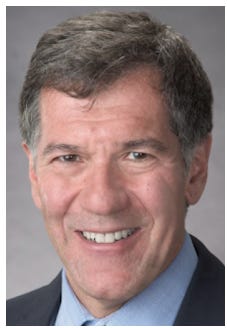Canada debates vaccine mandates
President Joe Biden spoke yesterday: "Our patience is wearing thin."
He announced mandates, but concluded the speech with a plea: "Get vaccinated."
Biden tried logic. "Vaccines provide very strong protection from severe illness." He tried guilt: "Your refusal has cost all of us." He tried begging: "So, please, do the right thing."
The speech mixed persuasion and compulsion. CNN's web story emphasized persuasion: "Biden makes appeal to unvaccinated Americans with sweeping new plan." The Huffington Post describes a combative Biden, confronting opponents and issuing mandates. Federal Employees must get vaccinated. Employees of federal contractors must get vaccinated. Teachers must get vaccinated. Companies with more than 100 employees must require their employees be vaccinated.
The push and pull between persuasion and compulsion is not unique to a polarized United States. Canada, our quiet, easy-to-ignore neighbor to the north, is going through its own tug of war. Sandford Borins offers an informed, close up look at what is happening in his home country of Canada. To remind American readers, Erin O'Toole is leader of the Conservatives; the People's Party of Canada is populist and libertarian; and an "order in council" is comparable to an executive order in the US.
Borins is now an emeritus professor at Canada's leading university, the University of Toronto. He was a college classmate who went on to be a scholar in political science. His professional work includes a focus on the message narratives imbedded in campaigns. In retirement he posts thoughtful observations in his blog: https://www.sandfordborins.com
Guest Post by Sandford Borins
Compel or Persuade
In his film about the conflict between Pierre Trudeau and Rene Levesque, The Champions, documentarist Donald Brittain refers to “the awesome weapons of office.” That attention-grabbing phrase brings to mind what politicians are fighting over and which of those weapons they would use if elected.A consistent difference between the Liberal (LPC) and Conservative (CPC) platforms is that the Liberals will use the power to compel or command behaviour, while the Conservatives are only willing to attempt to persuade.
Guns, Germs, and Carbon
On Covid, the Liberals will establish vaccine mandates for areas of federal jurisdiction (the public service, travel, federally regulated firms) and spend $1 billion to fund the infrastructure for provincial vaccine passports. Leading by example, all their candidates (but one with a medical exemption) have declared that they have been vaccinated. The Conservatives will set a goal of a 90 percent vaccination rate but achieve it only by persuasion. And they have refused to disclose the vaccination status of their candidates.
On climate change, the Liberals’ centerpiece is the mandatory carbon tax, which will rise to the level necessary to meet the Paris (and Glasgow) Accord targets. The Conservatives’ counterpart is the carbon points plan, designed to induce consumers to use their accumulated carbon points to reduce the price of an as-yet-undisclosed list of green purchases.
On gun control, the Liberal program is to take firearms out of the hands of Canadians, period, with a carefully circumscribed and regulated exception for hunters. The Conservatives’ position (after their shift on repealing the May 2020 Order-in-Council banning semi-automatic weapons) still envisages a “review of the Firearms Act with participation by law enforcement, firearms owners, manufacturers, and members of the public.” For the Liberals, the time for talk is over.
Differences that Matter
Part of this divergence in views can be explained by differing notions of, and sensitivity, to externalities. Small-l liberals are more likely to see externalities such as contagion in the context of a pandemic and carbon emissions that must be regulated. Small-c conservatives are more likely to minimize the impact of externalities and emphasize what they see as personal freedom.
The divergence is also political. The CPC is trying to protect its right flank from the resurgent People’s Party of Canada (PPC). Erin O’Toole and his advisers are concerned that if they go too far towards compulsory policies, they will bleed base voters to the PPC, which might cost them seats in which they are in tight races with the Liberals (suburban Toronto for instance).
If elected, the Conservatives run the risk that, ultimately, they may fail to persuade their base to get vaccinated, to use their carbon points to reduce their carbon footprints, or to surrender their firearms. The anti-vax protestors stalking Justin Trudeau are unlikely to be persuaded, even if their parents die of Covid.
The Liberals’ platform of compulsory policies (vaccine mandates and passports, carbon pricing, firearms regulation) depend on widespread public support. (In addition, the carbon pricing policy required a favourable ruling from the Supreme Court of Canada.) Downtown Torontonians such as myself are strongly in favour of all these policies, but I recognize that support throughout the country might well be softer, especially for escalating increases in the carbon price. A weakening of public support for these measures could lead to a Liberal defeat.
This election could well be a turning-point in terms of whether Canadians prefer the strong arm a government mandating behaviour or the softer approach of a government trying to persuade the recalcitrant.




